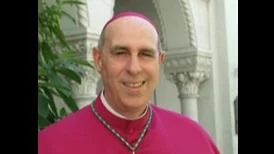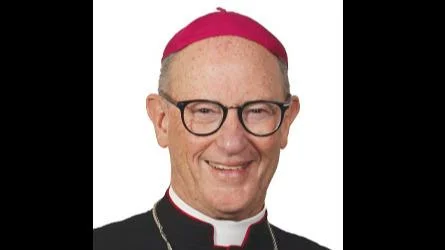
Reverend Larry Silva, Bishop | Diocese of Honolulu
This week, a team from the United States Conference of Catholic Bishops visited to discuss human trafficking, with a focus on the Native Hawaiian community. The community has a significant number of victims affected by this issue.
The team explained how traffickers exploit public records to target individuals being released from prison. Recognizing their vulnerability, traffickers make promises of assistance, which they may initially fulfill. However, once these individuals are entrapped, they are often forced into sex work or slave labor conditions. Traffickers also prey on vulnerable youth who may be struggling in school or experiencing trouble at home. They offer enticing opportunities either in person or online and quickly entrap these young people for exploitation in internet pornography or worse.
The Bishop emphasized that the concept of being "fishers of men and women" is not limited to followers of Jesus. He noted that advertising and entertainment can also have hooks that lead people down paths of sin and self-destruction.
February 8 marks the feast day of St. Josephine Bakhita, born in Sudan and a victim of the slave trade since her youth. She was eventually moved to Italy where she encountered the Catholic faith. After becoming a Catholic, the Canossian Sisters legally fought for her freedom from slavery and succeeded. Josephine became a Canossian Sister herself and devoted her life to loving others despite her own hardships. Canonized as a saint in 2000, she is now recognized as the patron saint of victims of human trafficking.
The Bishop drew parallels between St. Josephine's experience with the Canossian Sisters and how followers of Jesus aim to attract others through love rather than entrapment.
As disciples called to be fishers of men and women for good purposes, believers strive to bring people into Christ's light while actively working against dark purposes such as human trafficking. Efforts include supporting prisoners with love and hope for better lives post-incarceration, volunteering to assist ex-prisoners with skills training and job opportunities, engaging troubled youth positively, advocating for protective laws with government officials—all ways believers can guide others towards freedom.
Human trafficking remains largely hidden due to its nature; however, believers have an obligation to expose it using Christ's light that dispels darkness.
Fishing is likened to an industry where competition exists between those leading others toward destruction versus those guiding them toward freedom through love—a calling strengthened by reliance on divine guidance rather than personal strength alone: “Here I am Lord—Send me,” encourages participation in spreading freedom worldwide through faith-driven actions.






 Alerts Sign-up
Alerts Sign-up